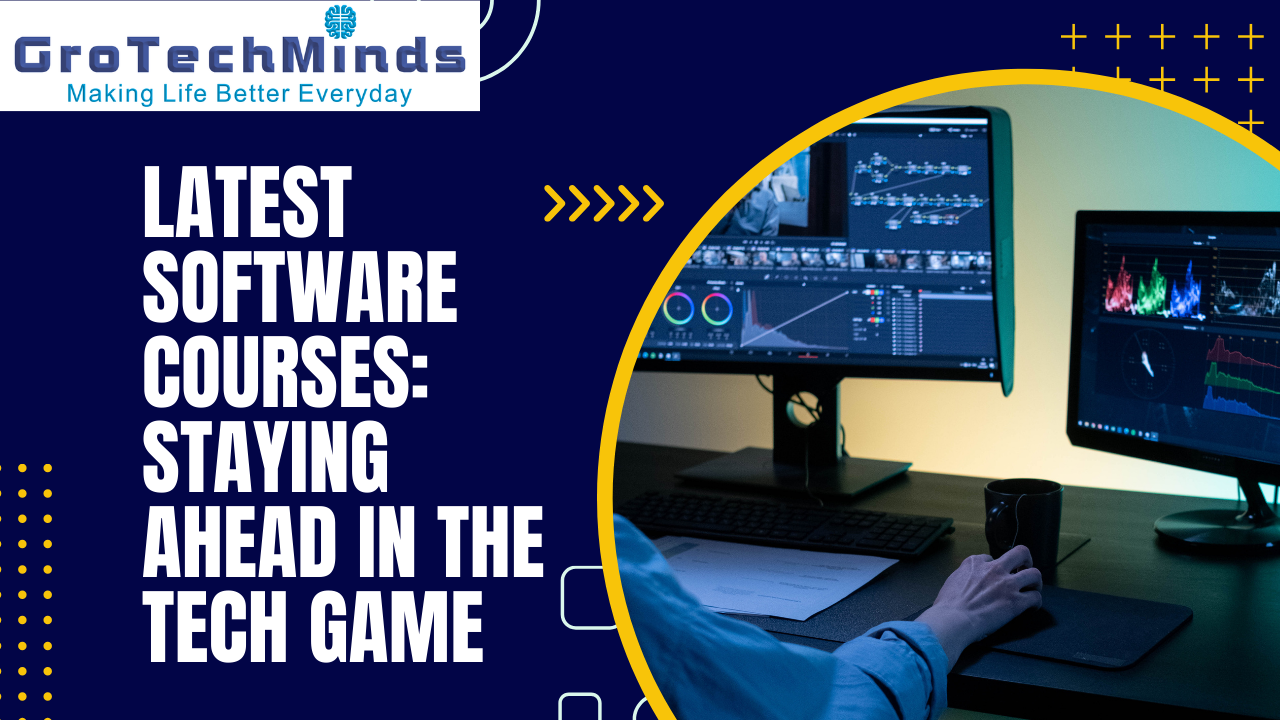Introduction:
In the ever-evolving landscape of technology, staying abreast of the latest advancements is crucial for professionals in the field of software development and testing. As industries rapidly adopt automation and manual testing methodologies, the demand for skilled individuals is higher than ever. In this blog post, we’ll explore some of the latest software courses that cater to the dynamic needs of the industry, focusing on automation testing and manual testing.
Automation Testing Mastery:
One of the key trends in software testing is the widespread adoption of automation tools to enhance efficiency and accuracy. Courses like “Advanced Automation Testing with Selenium” and “Mastering Appium for Mobile Automation” are designed to equip professionals with the skills needed to navigate the complex landscape of automated testing.
These courses delve into scripting languages such as Java, Python, and C#, offering comprehensive coverage of popular automation frameworks like Selenium and Appium. Participants learn to create robust test scripts, execute them across different browsers and devices, and integrate automated testing seamlessly into the software development lifecycle.
Moreover, these courses often include hands-on projects and real-world scenarios, allowing participants to apply their newfound skills in practical situations. As industries increasingly rely on automated testing for regression testing, continuous integration, and rapid feedback loops, professionals completing these courses are well-positioned to meet the evolving demands of the industry.
Manual Testing Excellence:
While automation is gaining momentum, manual testing remains a fundamental aspect of the software testing lifecycle. Courses such as “Comprehensive Manual Testing Techniques” and “Effective Bug Advocacy” focus on strengthening manual testing skills.
These courses cover a spectrum of manual testing aspects, including test case design, execution, defect tracking, and communication skills. Participants learn how to create detailed test plans, execute test cases meticulously, and communicate effectively with development teams. Emphasis is placed on exploratory testing, usability testing, and other areas where human intuition and observation are indispensable.
Additionally, these courses often address the integration of manual testing with automated testing, emphasizing the importance of a balanced testing strategy. Professionals completing these courses not only refine their manual testing skills but also understand how to leverage automation appropriately to achieve optimal testing outcomes.
DevOps Integration:
The intersection of development and operations, known as DevOps, is transforming the software development lifecycle. Courses like “DevOps for Testers” and “Continuous Testing in DevOps” provide insights into integrating testing processes seamlessly into the DevOps pipeline.
Professionals enrolled in these courses gain an understanding of DevOps principles, tools, and practices. The courses often cover topics such as version control, continuous integration, continuous deployment, and containerization. Participants learn how to create automated pipelines that include comprehensive testing at each stage, ensuring that software is thoroughly tested before reaching production.
Moreover, these courses address the cultural shift required for successful DevOps implementation. Collaboration, communication, and a shared responsibility for quality are key components of DevOps, and professionals completing these courses are equipped with the knowledge to foster these cultural changes within their organizations.
Performance Testing Proficiency:
In an era where user experience is paramount, performance testing is indispensable. Courses like “Mastering JMeter for Performance Testing” and “Load Testing with Gatling” focus on honing the skills required to assess and optimize the performance of software applications.
Participants in these courses delve into the intricacies of performance testing, learning how to simulate real-world scenarios, identify performance bottlenecks, and analyze results. The courses often cover popular performance testing tools, such as JMeter, Gatling, and LoadRunner, providing hands-on experience in creating realistic load tests and analyzing performance metrics.
Furthermore, these courses address the importance of performance testing in the context of web applications, mobile apps, and microservices architectures. With the increasing complexity of software systems, professionals completing these courses are well-equipped to ensure that applications not only function correctly but also deliver a seamless and responsive user experience under various conditions.
AI and Machine Learning in Testing:
The integration of artificial intelligence and machine learning in testing processes is a game-changer. Courses like “AI in Software Testing” and “Machine Learning for Testers” explore how these technologies can be leveraged to enhance test case generation, defect prediction, and overall testing efficiency.
Participants in these courses gain insights into the application of AI and machine learning algorithms in testing scenarios. They learn how to use machine learning models for predictive analysis, anomaly detection, and intelligent test automation. Additionally, the courses often cover ethical considerations and best practices for implementing AI in testing.
As the industry evolves, the ability to harness the power of AI and machine learning in testing becomes a valuable skill set. Professionals completing these courses not only stay ahead of industry trends but also contribute to the development of cutting-edge testing practices.
Conclusion:
Investing in the latest software courses is not just a professional development strategy; it’s a necessity in an industry that thrives on innovation. Whether you’re diving into automation testing, mastering manual testing techniques, embracing DevOps practices, optimizing performance testing, or exploring the realm of AI and machine learning, the right courses can propel your career to new heights.
Stay ahead of the curve, embrace continuous learning, and position yourself as a key player in the dynamic world of software testing. The software industry is continually evolving, and by equipping yourself with the latest skills, you ensure that you remain a valuable asset to your organization and contribute to the delivery of high-quality software in an ever-changing technological landscape.

